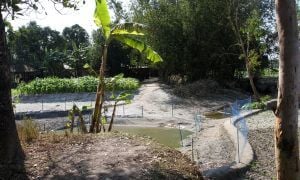
Read our 2023 annual report

Knowledge Hub
Increase local government budget allocation for effective disaster management in Bangladesh
This policy brief from the Zurich Flood Resilience Alliance programme in Bangladesh explores local level funding of disaster management.

Bangladesh is one of the most vulnerable countries in the world to sea-level rise, powerful cyclones, frequent flooding, and many more such events. Communities are on the front
line of the negative impact of climate change; they are the people most affected by and most vulnerable to the climate change crisis.
The local government in Bangladesh plays a crucial role in disaster management. This brief outlines the implications of local-level financing gaps on disaster management, and makes several policy and practice recommendations.
This policy brief has been developed based on the findings of Post Event Review Capability Study: Learning from the 2020 Floods in Faridpur District (Begum et al., 2021), interviews, and a number of small-scale studies carried out by the Zurich Flood Resilience Alliance (‘the Alliance'). This brief is also informed by the experiences of the Alliance’s partners of working with 15 flood-prone Unions in the districts of Faridpur, Lalmonirhat, and Gaibandha of Bangladesh.
Download the policy brief
Members of the Zurich Flood Resilience Alliance are funded by the Z Zurich Foundation, with the exception of Zurich Insurance Group. However, the views expressed in this publication do not necessarily reflect the official position of either the Foundation or the company.




